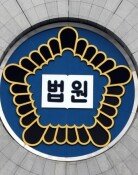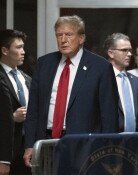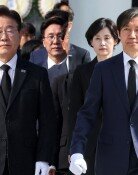Public support for Lee Jun-seok demands a significant shift in PPP
Public support for Lee Jun-seok demands a significant shift in PPP
Posted May. 26, 2021 07:27,
Updated May. 26, 2021 07:27
The shift in generations happening in the election for the People Power Party’s leadership is extraordinary. Lee Jun-seok, a 36-year-old former member of the party’s supreme council who has never been elected as a lawmaker, beat Joo Ho-young, an incumbent five-term lawmaker, and Na Kyung-won, a former four-term lawmaker in many surveys conducted before the party convention to be held on June 11. Kim Woong and Kim Eun-hye, who are both newly elected lawmakers born in the 1970s, are doing great as well. The opposition party and even the ruling party are paying close attention to this unprecedented trend.
The fact that these young, first-term or zero-term candidates who were considered to add young vigor to the convention are running in the race a lot faster than expected, is refreshing, and even meaningful. The party leader to be elected in the party convention should draw a big picture for the presidential election to be held only nine months after taking office and lead the party in the election. The increasing voice to present young candidates, instead of more experienced members of the party for a position that requires strong political power, shows Korea citizens’ demand for a generation shift in the opposition party.
The PPP won in the April 7 by-elections with the support of young voters in their 20s and 30s as well as centrists. But the support was only “conditional,” which could be withdrawn anytime if the party cannot reinvent itself as “rational conservative” through excruciating innovation. The warning and lashing on the party’s old way of thinking, which is demonstrated by their internal conflict to seize party hegemony that forgoes visions for the future even after the by-elections, is reflected in the support for younger candidates.
The party convention is garnering attention, but it should not be a mere controversy over a generational shift. The young energy of the candidates should be transfused into a fierce struggle on what visions they will adopt and how to innovate themselves to capture the support of the youth in their 20s and 30s and rational centrists.
Headline News
- Israel prepares for retaliation against Iran
- Samsung reclaims top spot, surpassing Apple in smartphone market
- 77% of Koreans in 20s and 30s are 'Kangaroo Tribe' due to job crisis
- KBO referees embroiled in controversy over ABS decision concealment
- Inflation, oil price surge put double shock on global economy







